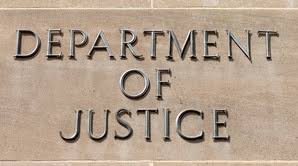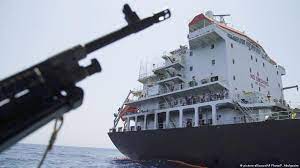DOJ FCPA Opinion Letter Draws Lines Regarding “Corrupt Intent” and the “Business Purpose” Test

Even with the absence of any major DOJ FCPA enforcement actions, DOJ issued an interesting FCPA Opinion Letter last week addressing application of the FCPA in circumstances where organizations face imminent serious bodily harm. While the situation may appear to be unique, it is a factual scenario that occurs more often than DOJ recognizes.
In October 2021, a Requestor submitted an Opinion Letter application that presented compelling emergency circumstances. The Requestor, an owner of a vessel, explained that a Foreign Country’s Navy had seized its vessel, arrested and jailed its captain and detained the vessel and its crew. Given the captain’s mental and physical health, the captain’s incarceration created an immediate threat of serious physical harm.
A third-party acting on behalf of the Foreign Country’s Navy demanded a cash payment of $175,000 to release the captain, the crew and the vessel. DOJ acted quickly and approved the Opinion Letter request. The payment was made and the captain and crew were released.
The Requestor submitted additional information to DOJ, and a more formal Opinion Letter was released last week containing the full story and analysis. While the circumstances are relatively unique, DOJ’s analysis provides additional clarity surrounding the definition of “corrupt intent” and the “business purpose” test.

Factual Background
The Requestor’s vessel mistakenly entered a Foreign Country’s territorial waters at the direction of another country’s port operator. The Foreign Country’s Navy seized the vessel, the logbook and officer’s and crew’s documents. The Navy then took the captain into custody. Once onshore, the captain was jailed. The captain was suffering from serious medical conditions that were significantly exacerbated by his detention, which created a significant risk to his life and well-being.
Subsequently, a third-party, acting on behalf of the Foreign Country’s Navy, approached the Requestor and demanded a payment of $175,000 to release the captain, the crew and the vessel. Interestingly, the Requestor retained its own third-party, which it had previously used and had successfully passed its due diligence scrutiny, to engage the third-party intermediary. The Requestor’s third party asked the third-party intermediary to provide formal documentation for the payment, such as an invoice, a charging document or other formal document that confirmed the penalty and basis for the payment. The third-party intermediary rejected these requests for documentation.
Additionally, Requestor sought assistance from the U.S. government to intervene and end the captain’s detention and permit the Requestor’s vessel to leave the Foreign Country. These efforts were unsuccessful.
Given the surrounding circumstances, the Requestor reached the reasonable conclusion that the payment was to benefit certain Foreign Country government officials. As a result, the Requestor filed an Opinion Letter application citing these emergency circumstances.
DOJ’s Analysis

DOJ’s analysis, while relatively brief, is instructive. DOJ concluded that the proposed payment would not trigger an enforcement action under the anti-bribery provisions of the FCPA because the proposed payment would not be made with “corrupt” intent and would not be made to “obtain or retain business.”
First, with respect to the definition of “corrupt” intent, DOJ noted that the term means an intent or desire to wrongfully influence the recipient of the payment of money or other thing of value. Second, as to the “business purpose” test of the FCPA, DOJ stated that the term means where the purpose of the payment or offer is to assist in obtaining or retaining business.
As presented, the Requestor demonstrated that the proposed payment would not be made with corrupt intent. The primary reason for the payment was to avoid imminent and potentially serious harm to the captain and the crew. DOJ explained that a “person acts corruptly if he acts voluntarily and intentionally, with an improper motive of accomplishing either an unlawful result or lawful result by some unlawful method or means.” DOJ noted that the term “corruptly is intended to connote that the offer, payment, and promise was intended to influence an official to misuse his official position.” United States v. Kozeny, 667 F.3d 122, 135 (2d Cir. 2011).
Conversely, DOJ explained that “an individual who is forced to make payment on threat of injury or death would not be liable under the FCPA. Federal criminal law provides that actions taken under duress do not ordinarily constitute crimes.” United States v. Kozeny, 582 F. Supp. 2d 535, 540 n.31 (S.D.N.Y. 2008); see also DOJ and SEC FCPA Resource Guide 27 (2d ed. 2020)(“Situations involving extortion or duress will not give rise to FCPA liability because a payment made in response to true extortionate demands under imminent threat of physical harm cannot be said to have been made with corrupt intent or for the purpose of obtaining or retaining business.”).

As to the business purpose test, DOJ explained that the Requestor’s payment “is not motivated by an intent to obtain or retain business.” DOJ cited the fact that Requestor “has no ongoing or anticipated business with the [Foreign Country].”Further, Requestor made no attempt to conceal the payment demand, engaged with various U.S. government personnel and requested proper documentation from the Foreign Country to support the requested payment.
While DOJ approved this Opinion Letter application, it distinguished the emergency situation presented from other situations in which a company is threatened with severe economic and financial consequences. DOJ cited Congress’ statement that “[t]he defense that the payment was demanded on the part of a government official as a price for gaining entry into a market or to obtain a contract would not suffice since at some point the U.S. company would make a conscious decision whether or not to pay a bribe.” FCPA Resource Guide at 27- 28, quoting S. Rep. No. 95-114, at 10-11. DOJ warned that payments under circumstances that companies may perceive as economically coercive, especially in countries in which they are in historical, pending, ongoing, anticipated, or sought after business relationships with government actors may well give rise to liability under the FCPA.
















1 Response
[…] Source link […]